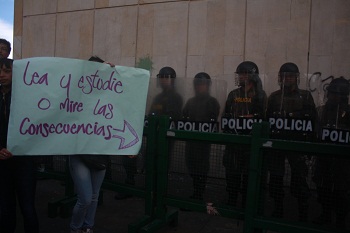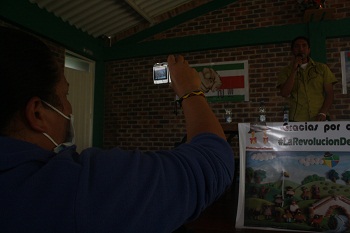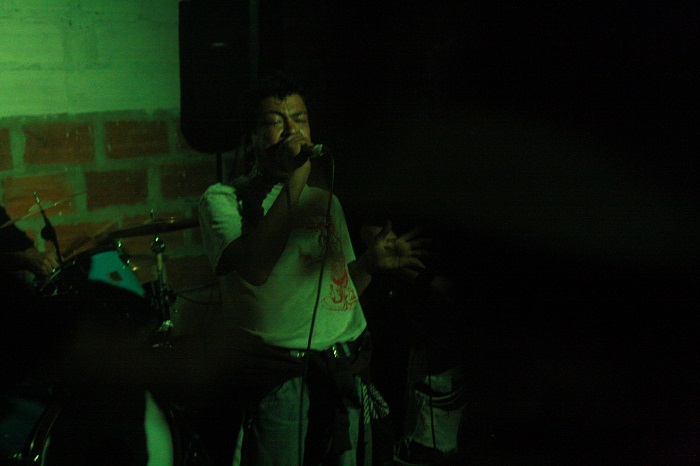
This is Luís Alberto Velásquez Molina and he knows something that the Colombian Police do not want you to find out.
![]()
Luís is from Medellin, a city famous for beautiful women, plastic surgery, and Pablo Escobar.
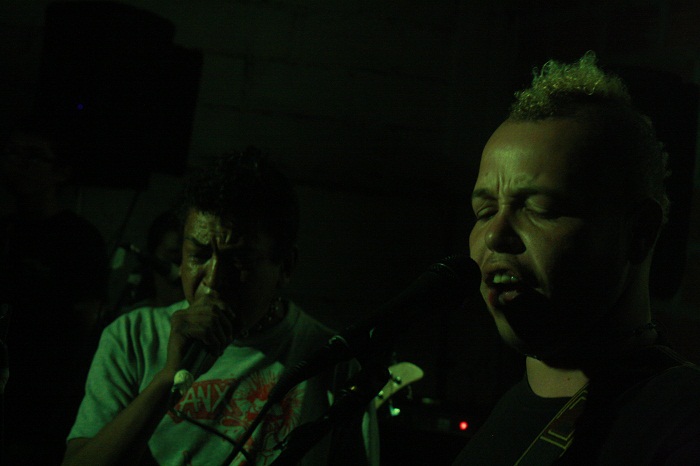
It’s also the heartland of Latin American Punk Rock.
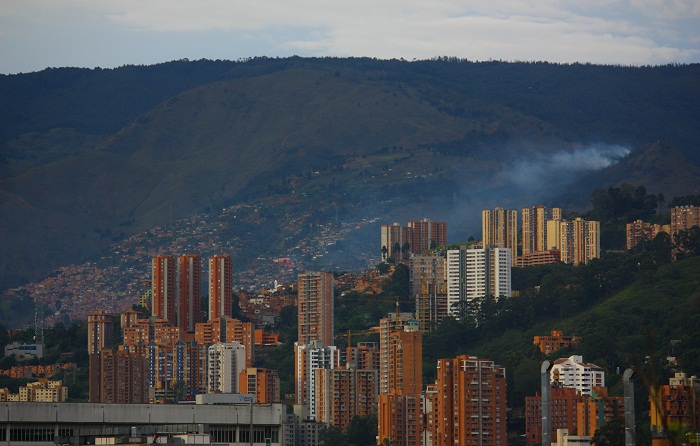 Luis lives in the hills above Medellin in a comuna called Villatina.
Luis lives in the hills above Medellin in a comuna called Villatina.
Villatina is no stranger to police violence.
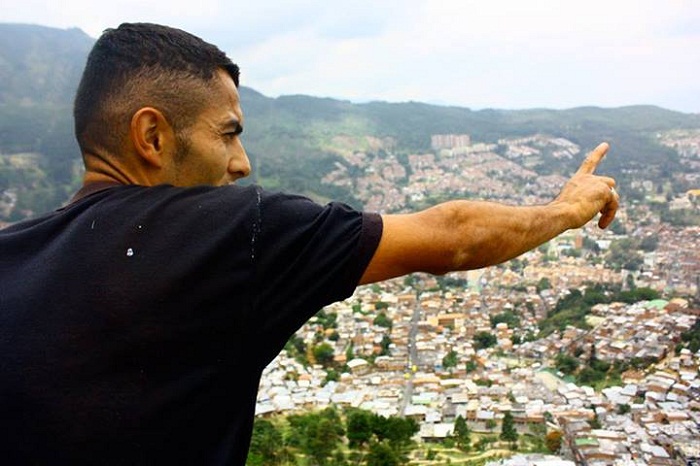
This man lives a few blocks away from Luis. He was 12 when his 17 year old brother was executed by police along with 7 other children in the Villatina Massacre.
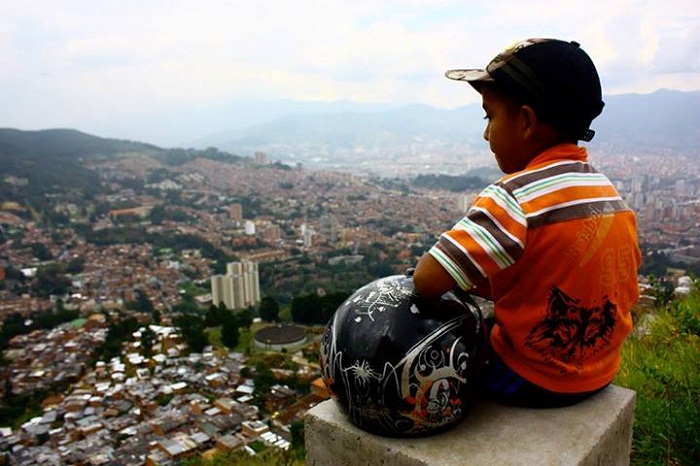
The police accused of orchestrating the massacre were never sentenced.
The victims families are still seeking justice 21 years later.
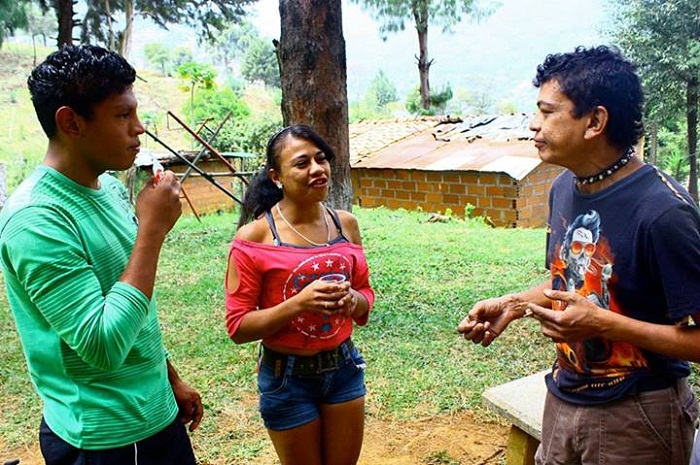
Luis is a role model for the youth of Villatina. They remember seeing his band Sonido Libertario or Libertarian Sound play for them in the comuna.
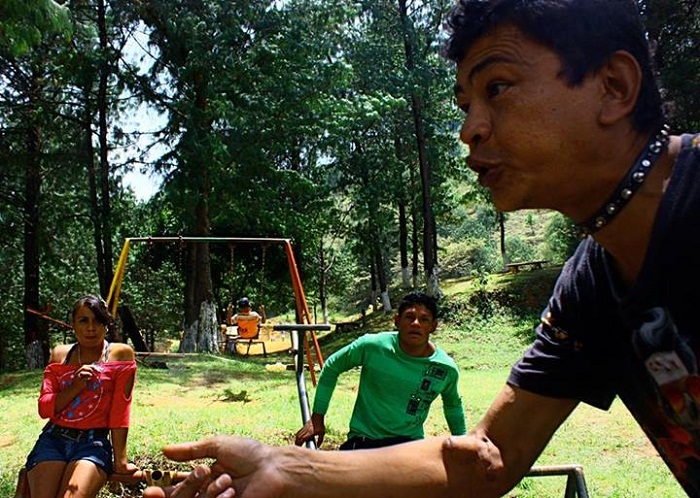
Luis wants to teach the youth of Villatina that music, not crime and violence, is the best outlet for anger against an extremely unjust society.
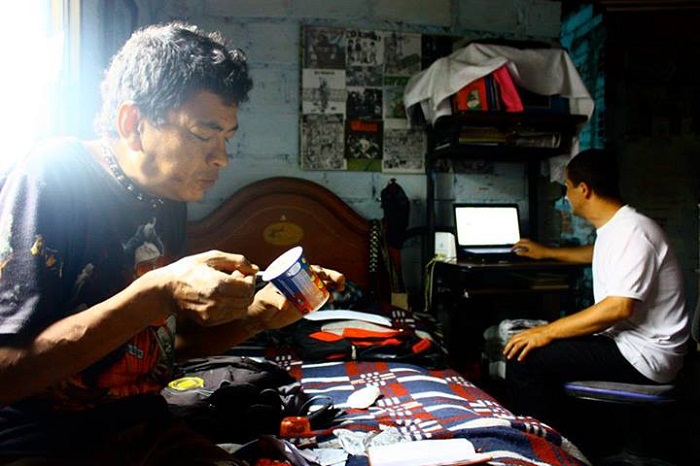
Luis has lived with a terminal illness for 14 years and needs a strict diet and dialysis to stay alive. “When I drink too much water my legs swell up.”
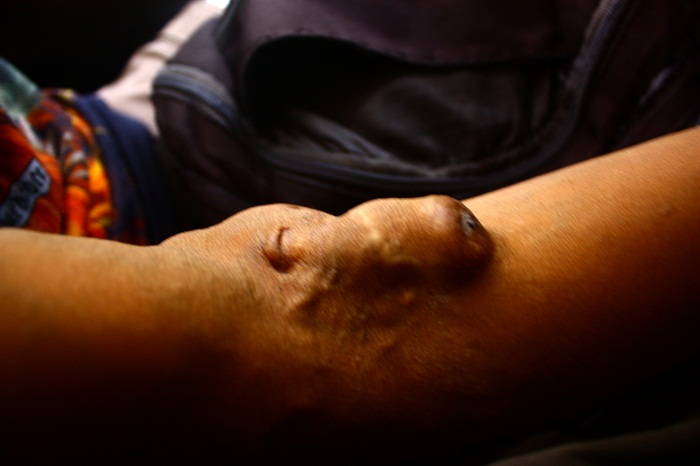 14 years of dialysis at 3 times a week for 4 hours a session equals 8,736 hours of a metal tube pumping and filtering blood through his arm.
14 years of dialysis at 3 times a week for 4 hours a session equals 8,736 hours of a metal tube pumping and filtering blood through his arm.
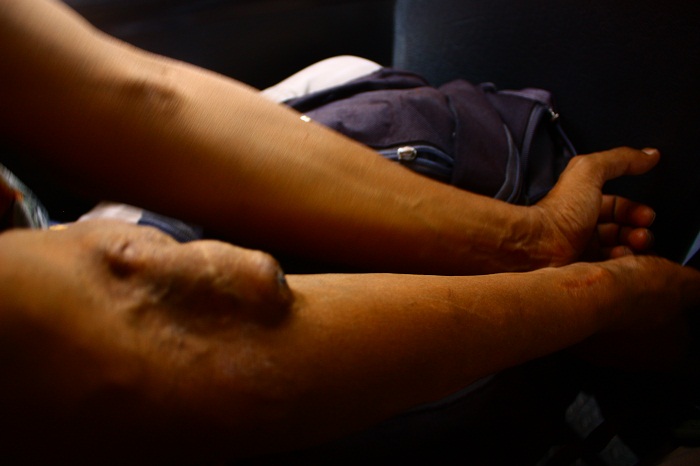
Luis waited 10 years to receive a kidney transplant in 2009 but his body rejected it a year later. He almost died.
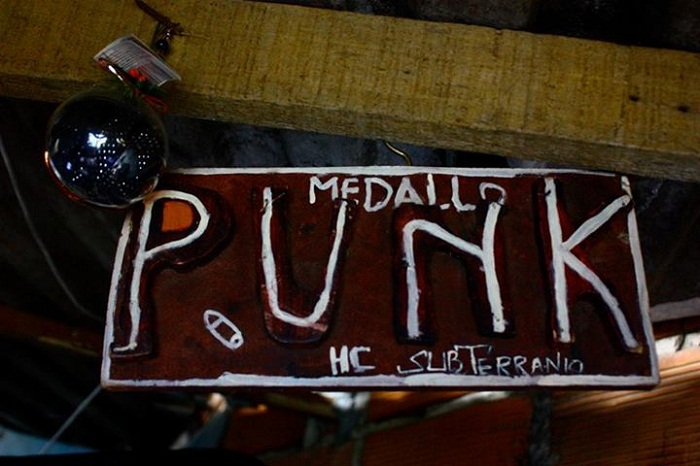 That’s when 28 punk bands from Medellin organized a concert they called “Punk to help a Friend” and raised enough money to buy Luis a small home in Villatina. He made a slow and painful recovery.
That’s when 28 punk bands from Medellin organized a concert they called “Punk to help a Friend” and raised enough money to buy Luis a small home in Villatina. He made a slow and painful recovery.
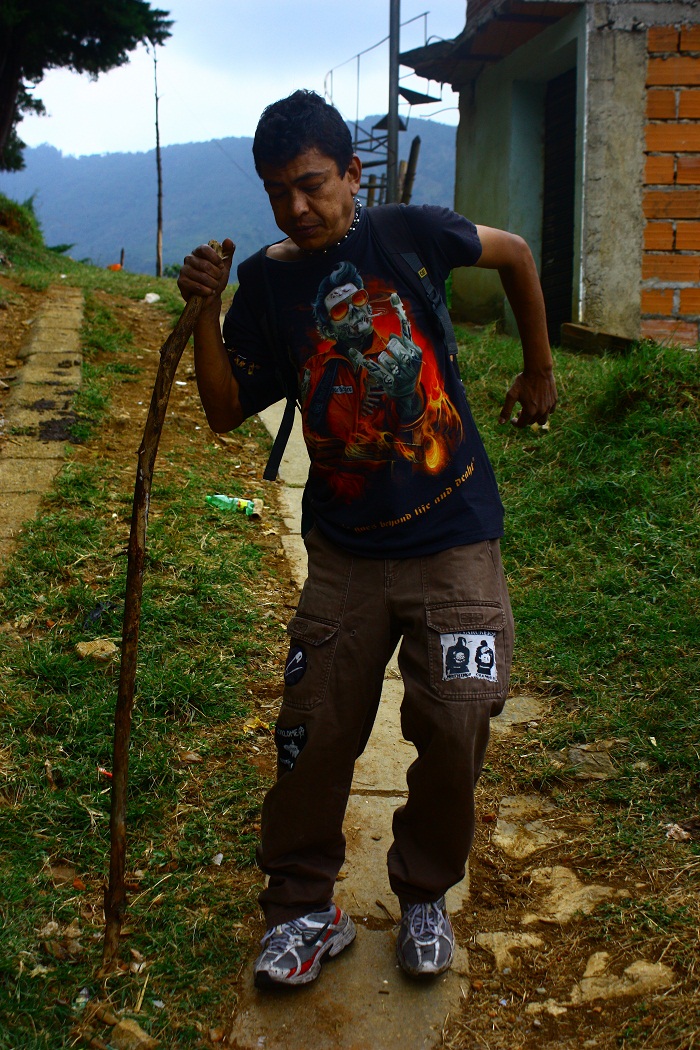
Besides from suffering a terminal illness, “Luchito” or “our Little Fighter” as the Punkeros call him, was in a car accident that permanently damaged his right ankle making movement difficult.
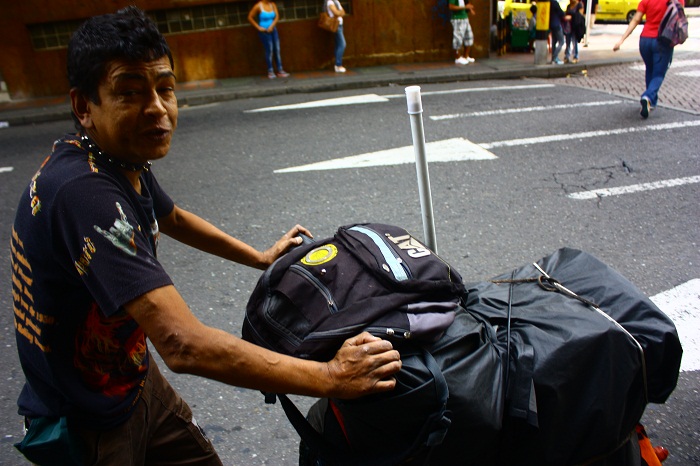 But that doesn’t mean Luis can stop being a Camel, or Camellar as they say in Colombia, when you work without food or breaks to scrape enough spare change together to survive.
But that doesn’t mean Luis can stop being a Camel, or Camellar as they say in Colombia, when you work without food or breaks to scrape enough spare change together to survive.
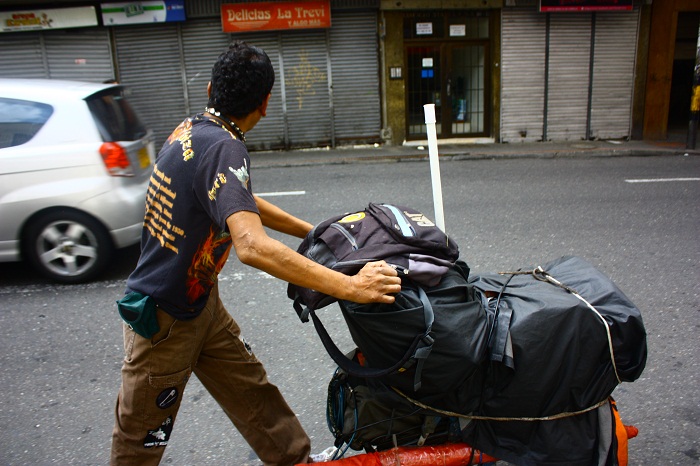 Luis created a D.I.Y. mobile shop out of a child’s pram with speakers to blast Punk Rock. After dialysis he wheels his shop carrying sweets and cigarettes to the same park he has worked 6 nights a week for the last 8 years.
Luis created a D.I.Y. mobile shop out of a child’s pram with speakers to blast Punk Rock. After dialysis he wheels his shop carrying sweets and cigarettes to the same park he has worked 6 nights a week for the last 8 years.
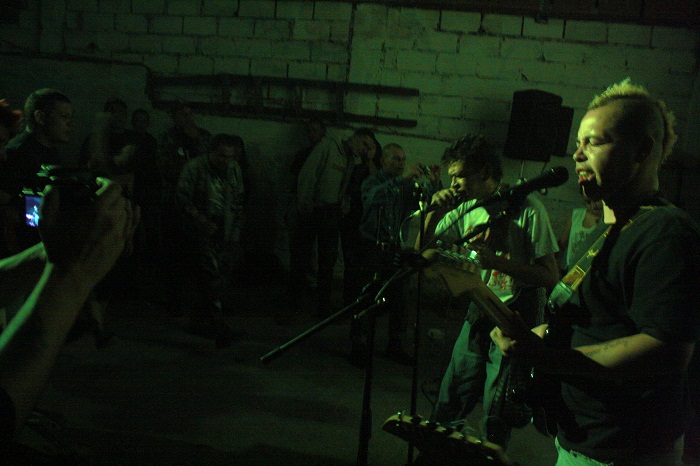
At 42 years old Luis is nowhere near as strong as his youth. But that’s not gonna stop him screaming Punk whenever Sonido Libertario gets together.
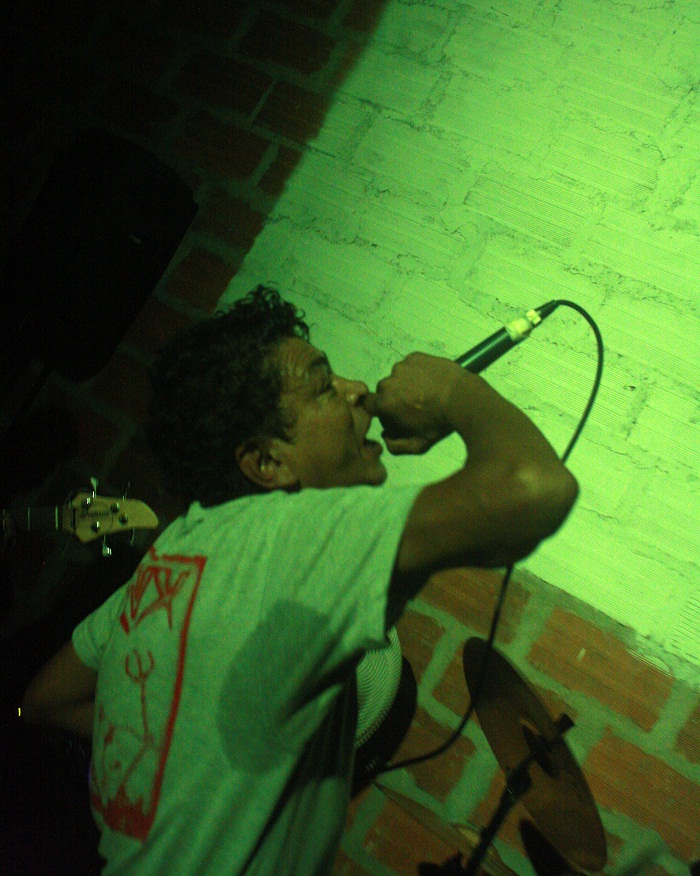
He’s exhausted after the performance but its worth it. Punk fires him up to get out of bed every morning so his 10 year old son wont become an orphan.
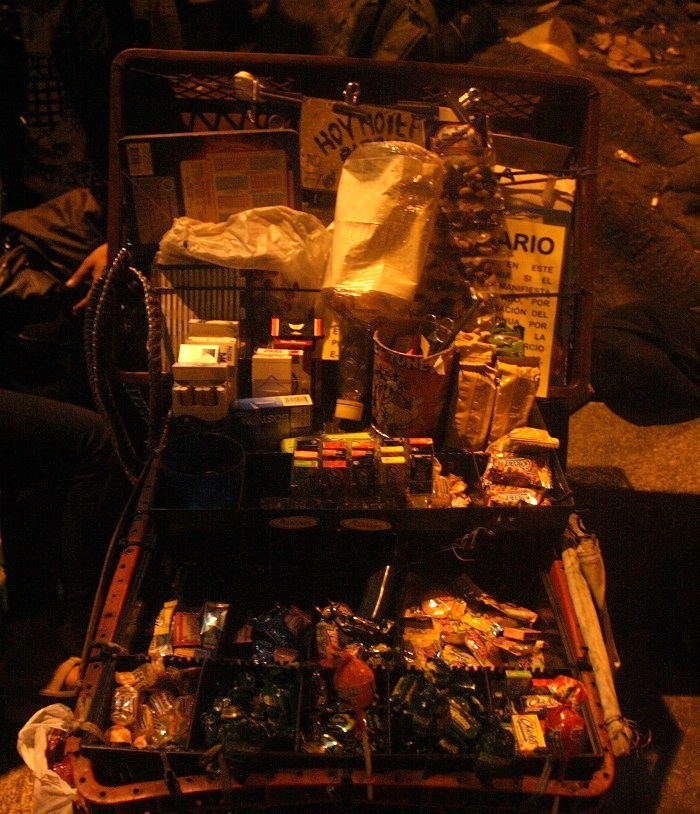
On the 29th of December 2012, Police discovered a military grenade in a black sealed bag placed on top of the lollypops and bubblegum in Luis’ cart.
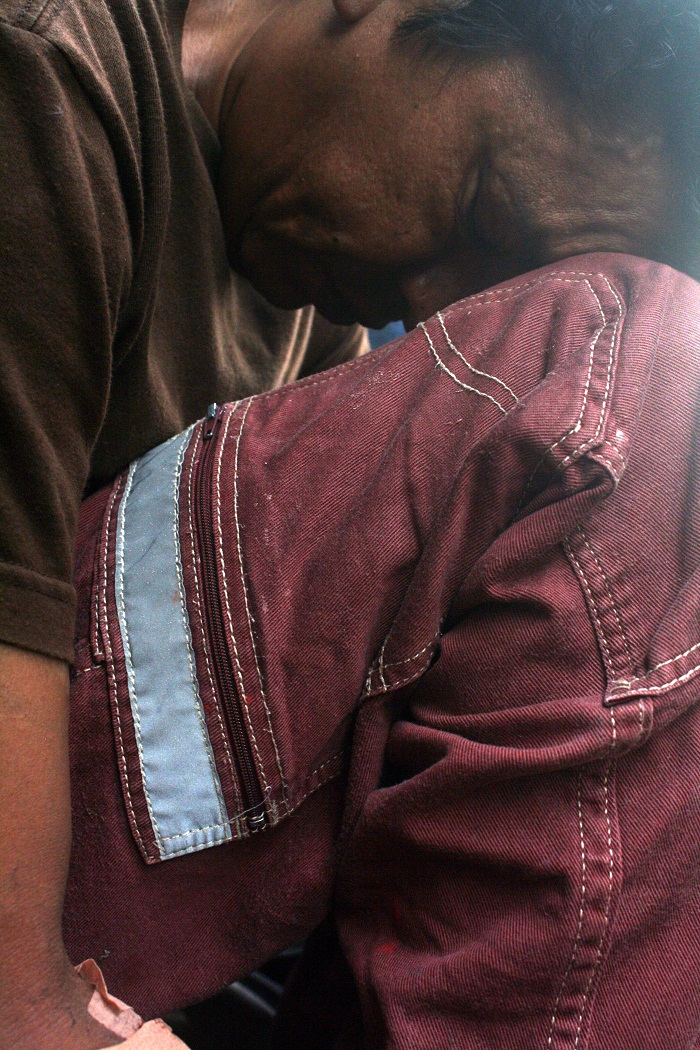
The night before last weeks court date Luis got home from work at Park Periodista at midnight, woke up at 3:30am, took 2 buses 1.5 hours to the hospital for his 5am-9am dialysis session, then another bus to court.
He was exhausted.
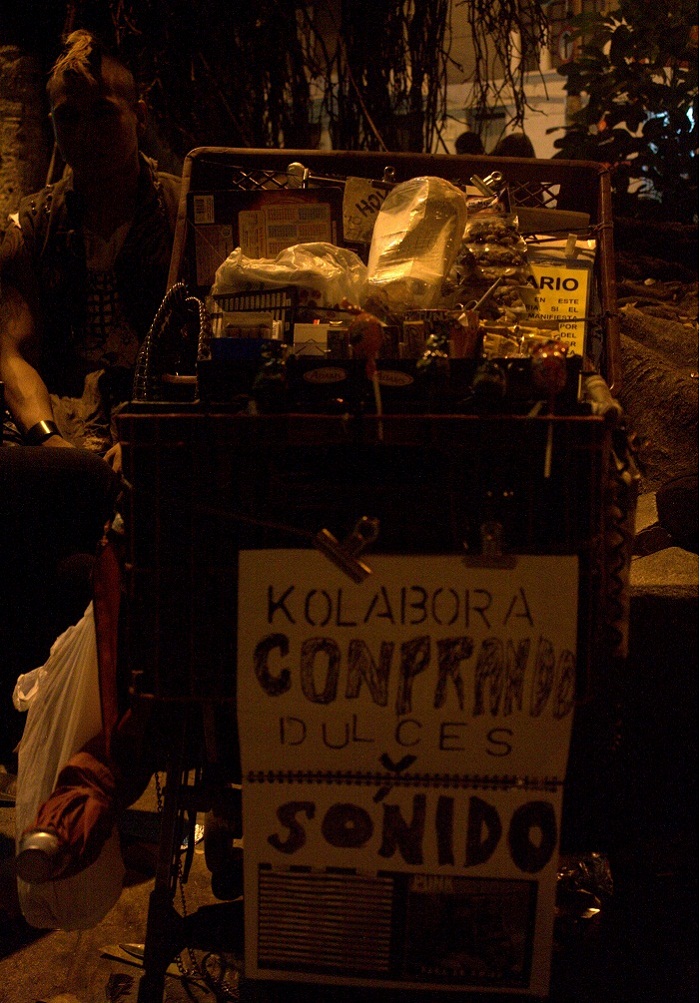
A witness sitting in Periodista Park with his grandson the night of the incident swore under oath he saw a third party place a black sealed bag on top of Luis’ cart moments before police arrived.
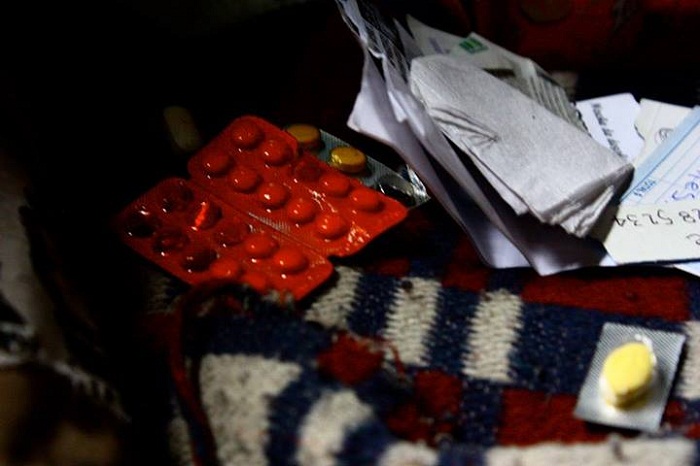
The prosecutor used the cocaine found inside the black sealed bag to paint Luis as a user of vicio or vice. The only chemicals Luis can consume without becoming extremely sick are an aggressive dose of medication.
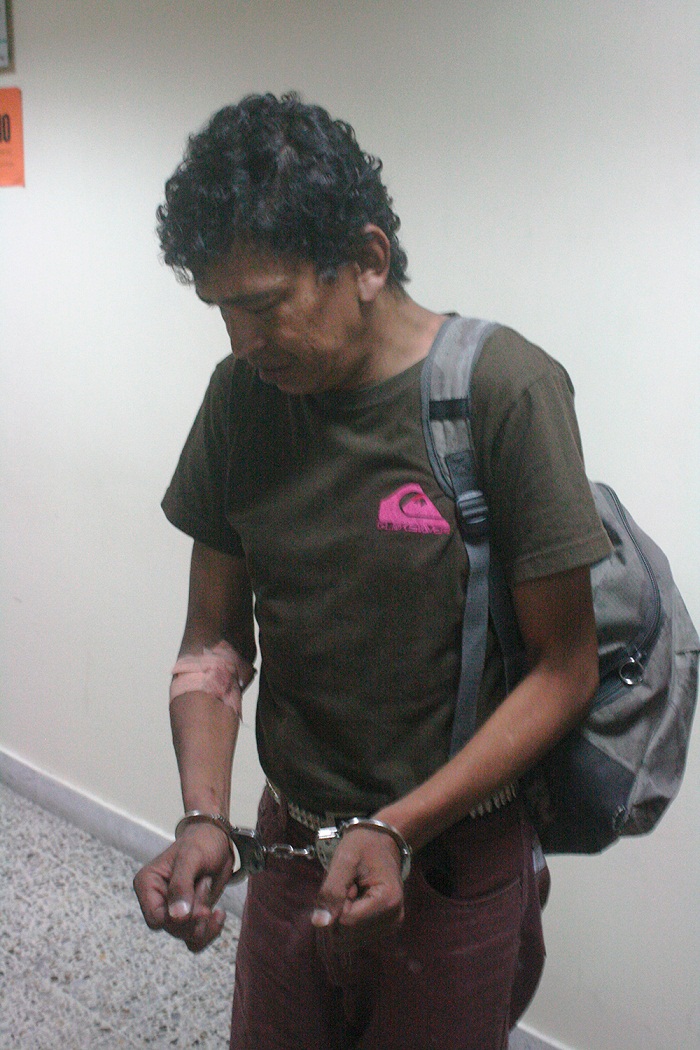
Neither Luis nor his defense lawyer were permitted access to the evidence being used against him. The evidence had been destroyed on the pretext it was “too dangerous” and Luis was taken away in handcuffs.
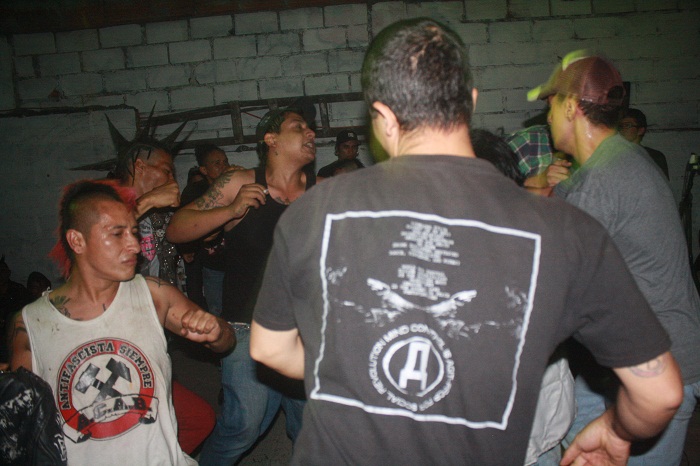
Medellin’s Punk Rockers Are Pissed.
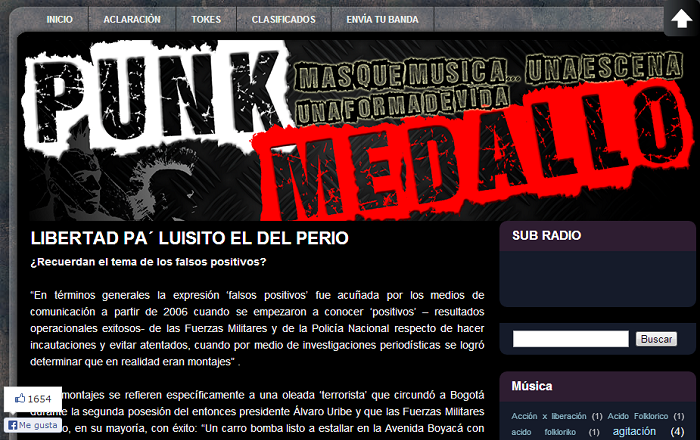 They believe the charges against Luís Velásquez were fabricated in a common practice called “False Positive” when police and military frame innocent civilians to earn commissions.
They believe the charges against Luís Velásquez were fabricated in a common practice called “False Positive” when police and military frame innocent civilians to earn commissions.
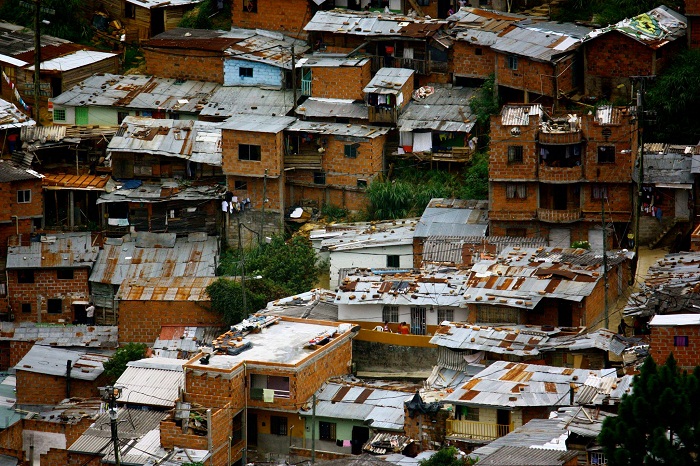
Victims of False Positives are primarily poor people because they cannot afford legal defense. They are easily forgotten.
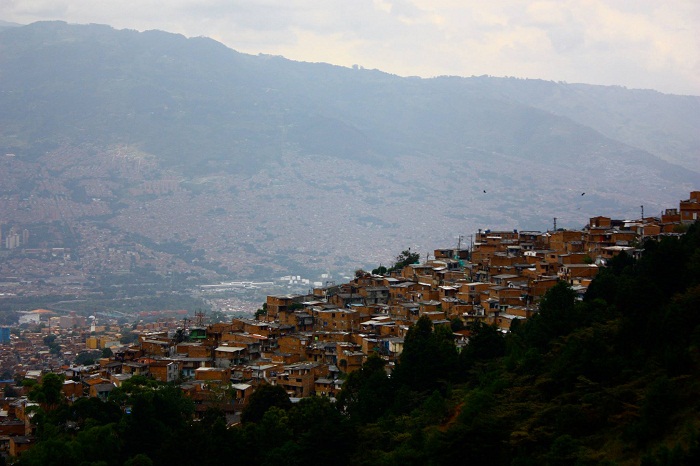
Leaked reports show armed forces can earn up to $3,000,000 COP ($1,565 USD) commissions for weapons they discover when an arrest is made.
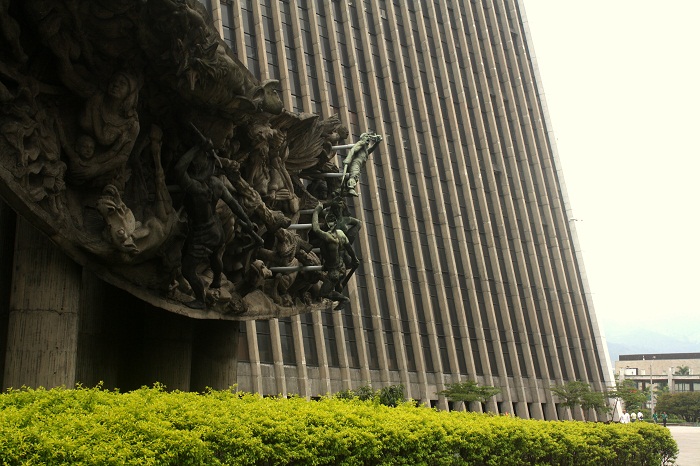
If the defense were permitted to examine the evidence against Luis before it was destroyed they may have been able to verify if the grenade was missing from a police warehouse.
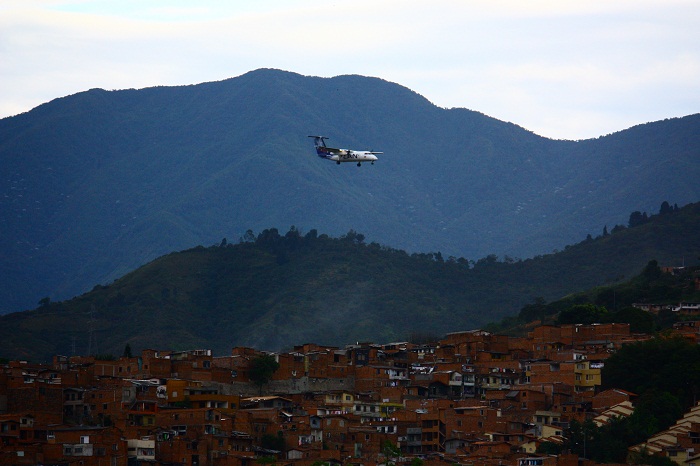
Medellin’s Punkeros believe everyone, irrespective of where they come from or what level of society they belong, deserve fair trials.
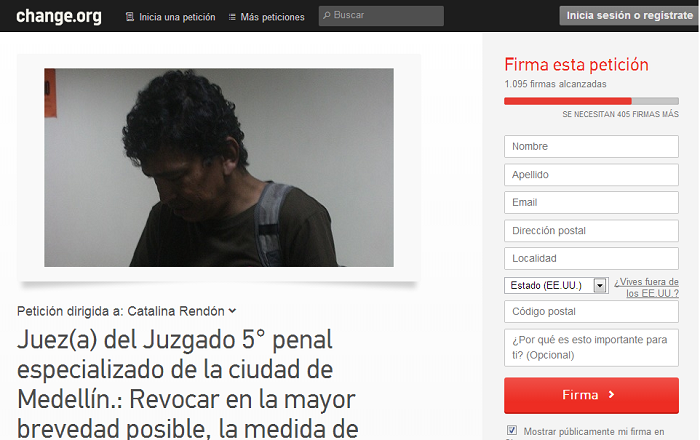
They set up a petition on CHANGE.ORG and every signature sends an email to the judge they say condemned an innocent man to his death inside a Maximum Security Prison. 1,095 emails and counting…
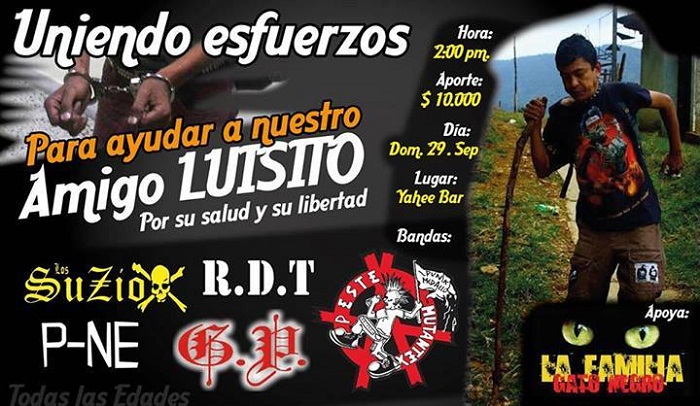
The Punkeros of Medellin saved the life of Luís Alberto Velásquez before. This Sunday they’ll do it again as Medellin’s best punk bands and their fans get together to raise money and awareness for his cause.
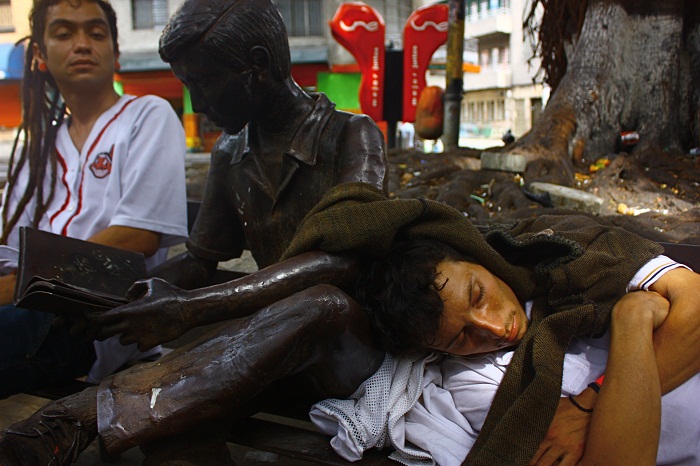
They want to scream a message that False Positives and Police Impunity are not welcome in Periodista Park – home of the memorial statues of 8 children executed by police in the Villatina Massacre.
Johana Mazo Ramírez (8 years),
Johny Alexander Cardona Ramírez (17 years),
Ricardo Alexander Hernández (17 years),
Giovanny Alberto Vallejo Restrepo (15 years),
Oscar Andrés Ortiz Toro (17 years),
Ángel Alberto Barón Miranda (16 years),
Marlon Alberto Álvarez (17 years),
Nelson Duban Flórez Villa (17 years),
Mauricio Antonio Higuita Ramírez (22 years).
You can help Luís Alberto Velásquez Molina too by sharing this page and signing the petition on CHANGE.ORG
Also all money raised from purchases of the “Police Bastard” EP by UK punk band DOOM are being sent to Luis Alberto Velasquez so he can afford to buy healthy food inside the atrocious conditions of Medellin’s Bellavista Prison.
UPDATE
Luis Alberto Velasquez Molina was granted house arrest after seven months in Bellavista Prison. The following photo shows Luis in his house in Villatina, a few hours after being released from prison, writing on the bottom of my article on Colombia Reports the following thanks:
“I am Luis Alberto Velasquez Molina and I am innocent. Thank you to all the people around the world for helping me with your signatures and to DOOM, Jake, the Doctor Marialena, Doctor Muñoz and all the energy of punks of the world.”
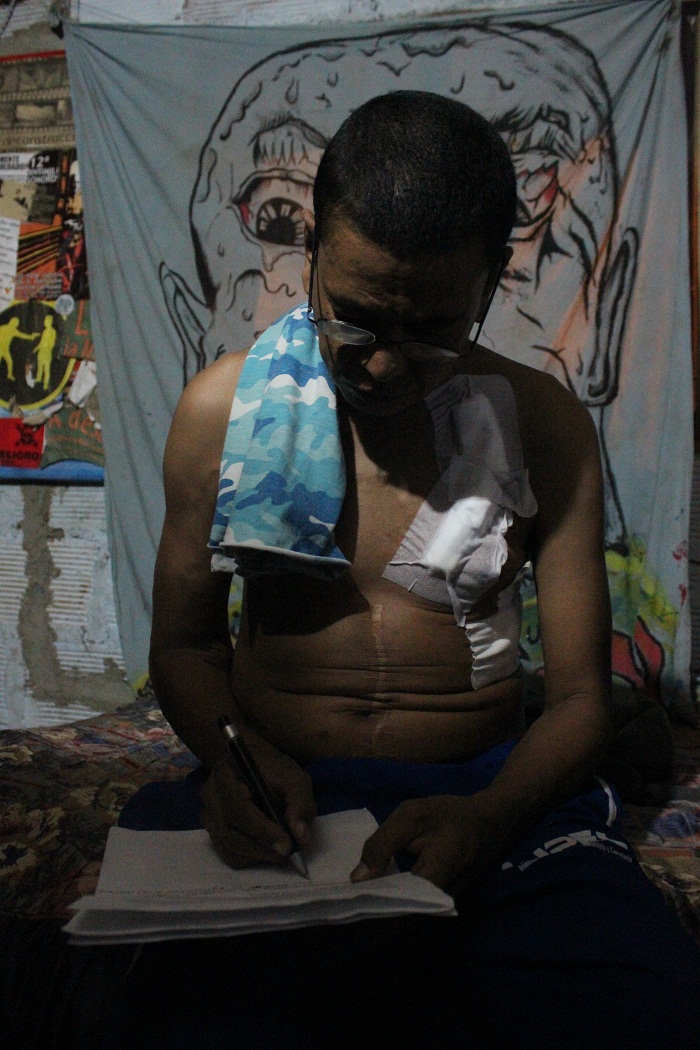
[mc4wp_form]

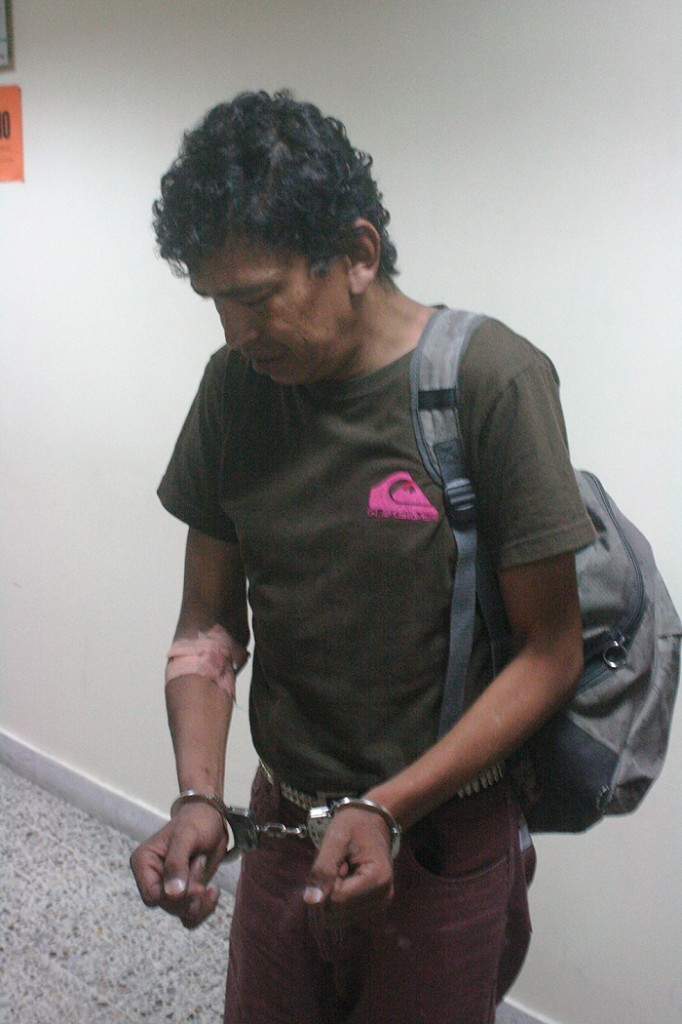
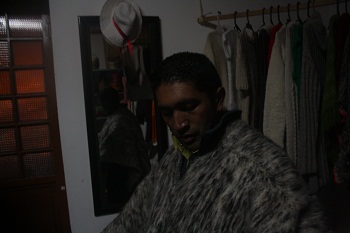
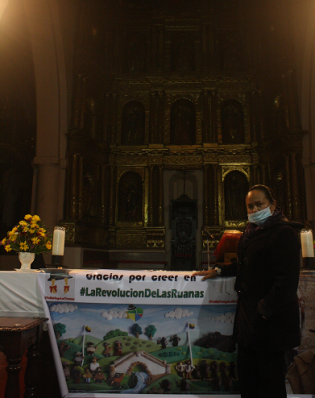
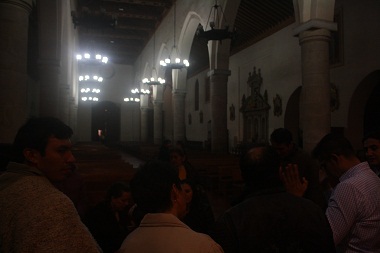
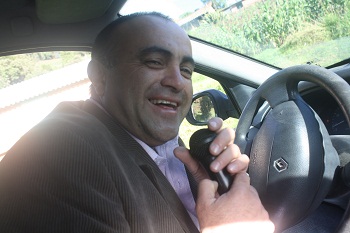 Before dawn 12 hours earlier a man they call Pacho from the nearby town of Paipa rigs his car with a speaker and microphone transforming it into a mobile soapbox.
Before dawn 12 hours earlier a man they call Pacho from the nearby town of Paipa rigs his car with a speaker and microphone transforming it into a mobile soapbox.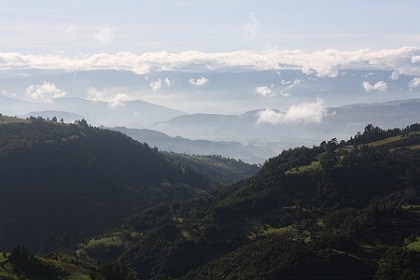 Over the following decades everything from contraband Ecuadorian potatoes to European imports of powdered milk made it harder for Boyacenses to do business.
Over the following decades everything from contraband Ecuadorian potatoes to European imports of powdered milk made it harder for Boyacenses to do business. Three paperos or potato farmers come to greet us, “this land makes good potatoes but what kills us are the importations, they don’t let us compete and now we are broke” says community leader Alexander Camargo.
Three paperos or potato farmers come to greet us, “this land makes good potatoes but what kills us are the importations, they don’t let us compete and now we are broke” says community leader Alexander Camargo.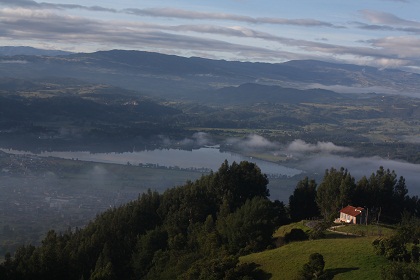 “When the government took the barley off us we had to look for a different crop, some went for potatos, others for milk or onions,” says Wilson Pulido a representative for the region.
“When the government took the barley off us we had to look for a different crop, some went for potatos, others for milk or onions,” says Wilson Pulido a representative for the region.

